Piano Tuner in Inverclyde, Renfrewshire, Glasgow, the west of Scotland and beyond.
From the start of upright piano manufacturing, some makers occasionally produced reduced-size models for specific purposes, often with fewer keys. These were rather specialised instruments, and relatively few in number.
From the 1950s however, and particularly in the 1960s, a general trend emerged for manufacturers to make upright pianos that were much lower in height than the traditional upright piano.
Probably this was due to changing home fashions and post-war housing with smaller rooms. Various piano factories made these instruments, which have the normal number of keys (85 or 88), and of the normal key width, but which are very short in height. Pianos of this type were made in large numbers in the USA too, where they are called "Spinet" pianos, and appear in a variety of attractive case finishes.
On this page, we will look at some of the UK models of such mini pianos.
Here is a model made by the Kemble company, which they called the Minx:
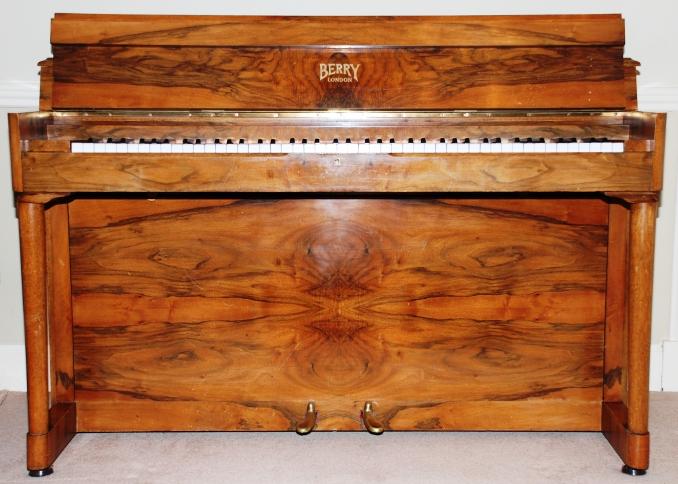
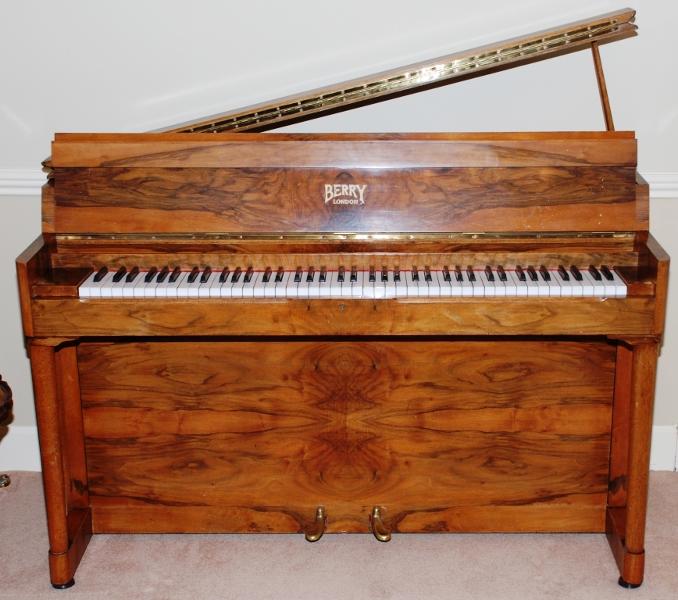
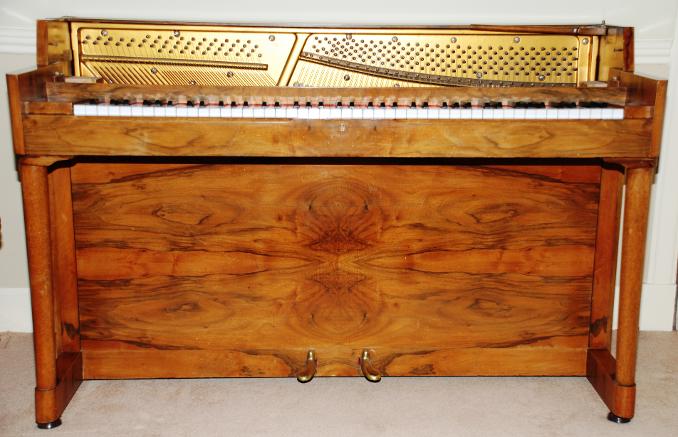
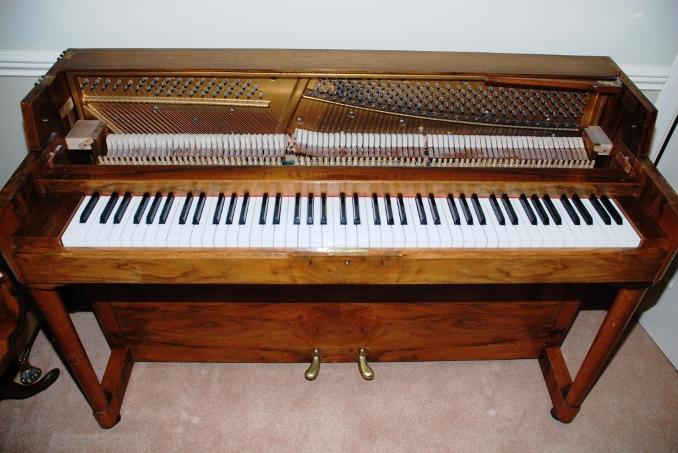
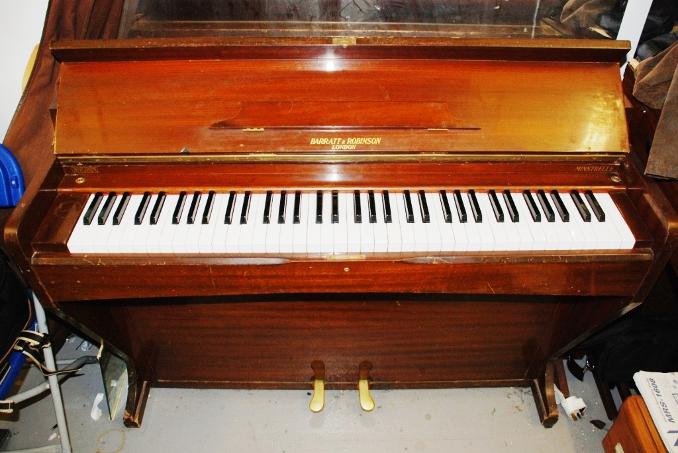
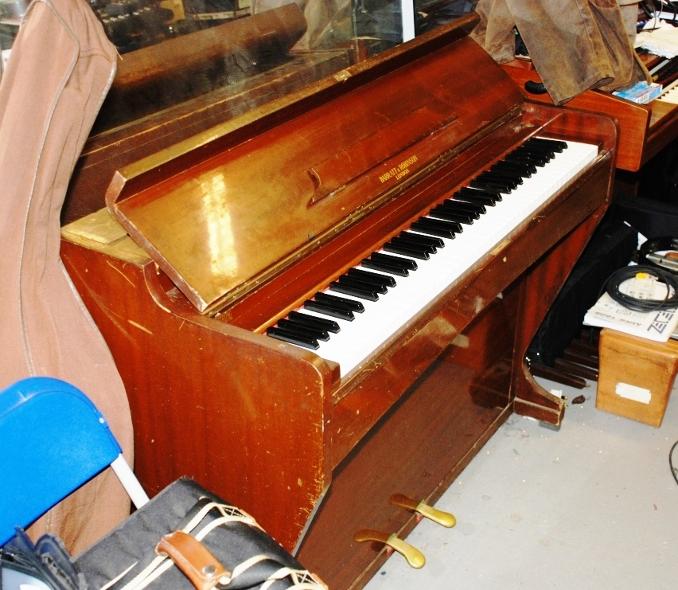
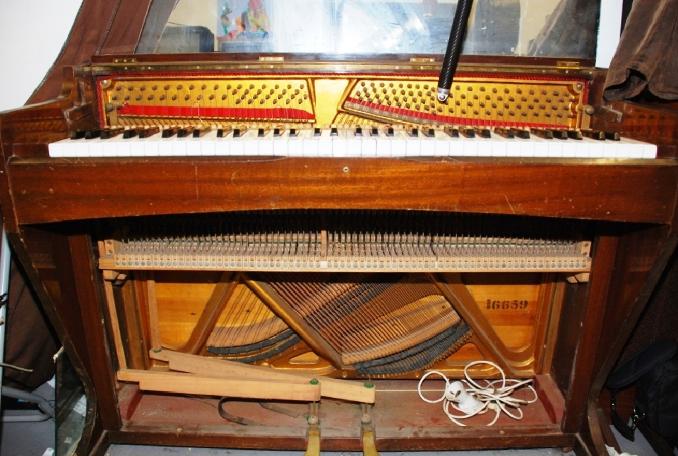
This means that it is very difficult to do any kind of repair to any part of the action. Normally to remove the action of an upright piano takes only seconds, but these 'dropped action' mini pianos are a different matter.
The Eavestaff company made several models of mini piano. Here is the Eavestaff Minipiano:
Look at how the Eavestaff Minipiano action fits in on a slant:
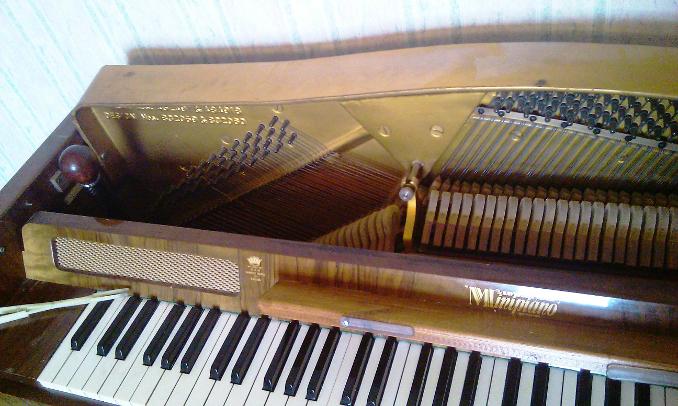
The action is an extraordinary thing, with the bass section at a crazy angle down inside the piano, and the bass tuning pins also far down inside.
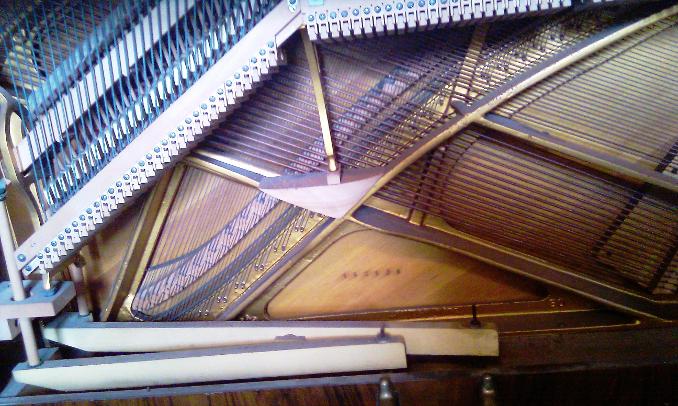
So secondhand piano buying advice must be to avoid mini pianos, and if you own one, realise that if anything goes wrong, it will probably be too costly to repair.
We should note regarding the American piano market, that US 'spinet' pianos had a wide distribution, and some have very nice casework. They seem to have been produced for a longer period and in greater numbers than in the UK, and so may be younger and in better condition. If you do an image search for 'spinet pianos' you will find lots of examples of such American pianos.
Photos taken by kind permission of the piano owners.
Here is a video from Marcus Roberts of Roberts Pianos in Oxford, featuring another Eavestaff model, the Pianette. Marcus explains why they don't buy and sell minipianos: Roberts Pianos have an extensive website and many excellent videos on YouTube which give quite a piano education in themselves.
Finally, if you'd like a really REALLY mini grand piano, how about this Kawai model played here by concert pianist Hayato Sumino:
All parts and contents of this website are the intellectual property of David Boyce unless otherwise indicated, and may not be copied or reproduced in any manner without permission. December 2025